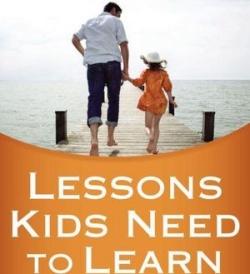Raising Wise Children: Handing Down the Story of Wisdom
By Mark Matlock
Zondervan, 2012, 160 pp., $12.99
Lessons Kids Need to Learn: Six Truths to Shape the Character of the Child You Love
By David Staal
Zondervan, 2012, 160 pp., $14.99
Spiritual Parenting: An Awakening for Today’s Families
By Michelle Anthony
David C. Cook, 2010, 222 pp., $14.99
Dreaming of More for the Next Generation: Lifetime Faith Ignited by Family Ministry
By Michelle Anthony
David C. Cook, 2012, 224 pp., $14.99
Each of these practical resources on parenting underscores what it means to invest in kids. Mark Matlock speaks with meaty wisdom that has been marinated in academics and warmed up to a palatable taste anyone can sink their teeth into. Often what families believe is their greatest goal, such as creating good kids, falls short of the greater story that typically runs against the grain of the American Dream. Matlock offers more than theory, giving readers specific observations, action steps and wisdom to better interact with students.
According to David Staal, teaching spiritual balance is the key to avoiding extremes that make young people feel too entitled or lack self-esteem. Each chapter’s advice includes two memorable catchphrases that complement each other, such as “Believe that you matter; live like others matter more.” These checkpoints give families or ministries something useful to dig into, especially as the writing style is invitational to all audiences.
Dr. Michelle Anthony echoes these sentiments in Spiritual Parenting, focusing on the parent’s role as being a follower of Jesus Christ as a higher priority than creating good behavior in their kids. As the parent learns to depend on God, parenting becomes less about producing an end-product and more about maximizing environments where youth can experience the Lord through success, failure, conclusions and questions.
Informally gluing these two resources together is Dreaming of More for the Next Generation, a handbook for churches that want to equip families to better follow the Holy Spirit. Common temptations are addressed, such a making ministry about moral training or simply communicating information. Although the language makes Anthony’s writing sound like an intergenerational approach to family ministry, the typical youth group structure can maximize these tips through an honest assessment that creates a faith community aligned toward common values.
For all of this profound wisdom, the struggle ultimately rests in the decision by a parent or a church to change. Laying out a comprehensive plan means nothing without painting a picture for the envisioned future that includes a personal life of worship. We simply can’t give students something we don’t have, which is why these three resources are more than critical to set our minds on things above.




